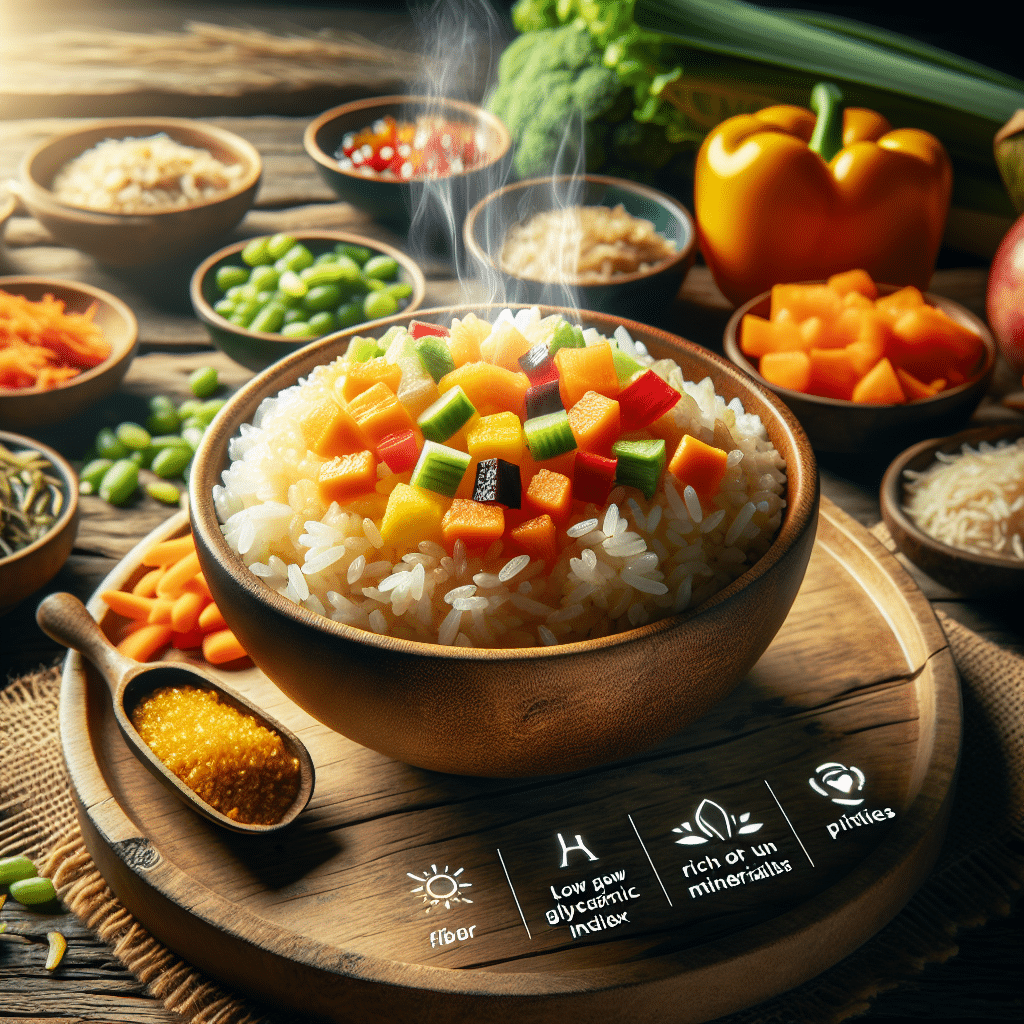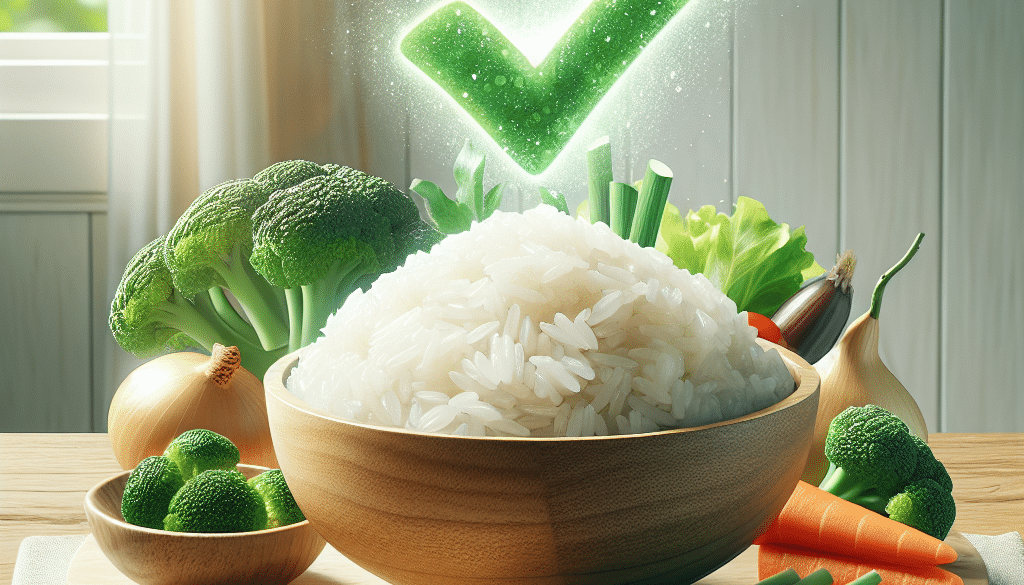Is There Healthy Sticky Rice?
-
Table of Contents
- Healthy Sticky Rice: Nutritional Benefits and Varieties
- Understanding Sticky Rice: Composition and Nutritional Profile
- Is Sticky Rice Healthy?
- Healthier Varieties of Sticky Rice
- Incorporating Sticky Rice into a Healthy Diet
- Case Studies and Research
- Conclusion: Balancing Enjoyment and Nutrition
- Enhance Your Diet with ETprotein’s Protein Products
Healthy Sticky Rice: Nutritional Benefits and Varieties

Sticky rice, also known as glutinous rice or sweet rice, is a staple in many Asian cuisines, particularly in Southeast Asia. It is known for its unique texture that becomes sticky when cooked, making it a favorite for dishes like sushi, mango sticky rice, and various dumplings. However, with the growing health consciousness among consumers, many are questioning whether sticky rice can be considered a healthy option. This article delves into the nutritional aspects of sticky rice, its health benefits, and how it can be incorporated into a balanced diet.
Understanding Sticky Rice: Composition and Nutritional Profile
Sticky rice is a type of short-grain rice that contains a higher amount of amylopectin, a component of starch that gives it its sticky texture. Unlike regular white rice, which contains both amylose and amylopectin, sticky rice has almost no amylose. This difference in starch composition affects the rice’s texture and digestion.
The nutritional profile of sticky rice is similar to that of other white rice varieties, providing carbohydrates as its primary macronutrient. It is also a source of some essential vitamins and minerals, such as vitamin B6, magnesium, and phosphorus. However, like other white rice varieties, sticky rice is low in fiber and has a high glycemic index (GI), which means it can cause a rapid increase in blood sugar levels.
Is Sticky Rice Healthy?
The healthiness of sticky rice can be subjective and depends on individual dietary needs and the overall balance of one’s diet. Here are some considerations:
- Carbohydrate Content: Sticky rice is a good source of carbohydrates, which are essential for energy. However, it should be consumed in moderation, especially by individuals with diabetes or those watching their blood sugar levels.
- Fiber: Traditional sticky rice is low in fiber. Choosing whole-grain or brown sticky rice can increase fiber intake, which is beneficial for digestive health and can help regulate blood sugar levels.
- Vitamins and Minerals: While sticky rice does provide some nutrients, it is not as nutrient-dense as other whole grains. Fortified versions or those naturally richer in nutrients can be healthier choices.
Healthier Varieties of Sticky Rice
For those looking to enjoy sticky rice as part of a healthy diet, there are several healthier options available:
- Brown Sticky Rice: This whole-grain version retains the bran and germ, offering more fiber, vitamins, and minerals than its white counterpart.
- Black Sticky Rice: Also known as forbidden rice, black sticky rice is rich in antioxidants, particularly anthocyanins, which give it its dark color and may offer health benefits.
- Fortified Sticky Rice: Some sticky rice products are fortified with additional nutrients, such as iron or B vitamins, to enhance their nutritional profile.
Incorporating Sticky Rice into a Healthy Diet
Sticky rice can be part of a healthy diet when consumed in moderation and balanced with other nutrient-dense foods. Here are some tips for healthier consumption:
- Pair sticky rice with protein sources like fish, tofu, or beans to create a more balanced meal.
- Combine it with vegetables to increase the fiber content and nutrient diversity of your dish.
- Use it in moderation as part of a varied diet that includes other whole grains and nutrient-rich foods.
Case Studies and Research
Several studies have examined the health impacts of consuming white rice, including sticky rice, and its relationship with chronic diseases. For instance, research has shown that high consumption of white rice may be associated with an increased risk of type 2 diabetes. However, other studies suggest that when white rice is consumed as part of a traditional diet rich in vegetables, fish, and fermented foods, it may not pose the same health risks.
It’s important to consider these findings in the context of an overall dietary pattern rather than isolating sticky rice as a single factor.
Conclusion: Balancing Enjoyment and Nutrition
Sticky rice can be enjoyed as part of a healthy diet when consumed in moderation and paired with other nutritious foods. Opting for whole-grain varieties like brown or black sticky rice can provide additional health benefits. As with any food, the key is balance and variety in your diet.
Enhance Your Diet with ETprotein’s Protein Products
If you’re looking to complement your healthy diet with high-quality protein sources, consider ETprotein’s range of organic bulk vegan proteins. Their products, including Organic rice protein and other plant-based proteins, are non-GMO, allergen-free, and characterized by a neutral taste. These proteins can be a great addition to your meals, providing the essential amino acids your body needs for muscle repair, immune function, and overall health.
For those interested in incorporating more plant-based proteins into their diet, ETprotein offers a variety of options that can be used in cooking, baking, or as a supplement to your favorite dishes. Whether you’re an athlete looking for sports nutrition or someone seeking to improve your dietary habits, ETprotein has a protein solution for you.
About ETprotein:
ETprotein, a reputable protein and L-(+)-Ergothioneine (EGT) Chinese factory manufacturer and supplier, is renowned for producing, stocking, exporting, and delivering the highest quality organic bulk vegan proteins and L-(+)-Ergothioneine. They include Organic rice protein, clear rice protein, pea protein, clear pea protein, watermelon seed protein, pumpkin seed protein, sunflower seed protein, mung bean protein, peanut protein, and L-(+)-Ergothioneine EGT Pharmaceutical grade, L-(+)-Ergothioneine EGT food grade, L-(+)-Ergothioneine EGT cosmetic grade, L-(+)-Ergothioneine EGT reference grade and L-(+)-Ergothioneine EGT standard. Their offerings, characterized by a neutral taste, non-GMO, allergen-free attributes, with L-(+)-Ergothioneine purity over 98%, 99%, cater to a diverse range of industries. They serve nutraceutical, pharmaceutical, cosmeceutical, veterinary, as well as food and beverage finished product distributors, traders, and manufacturers across Europe, USA, Canada, Australia, Thailand, Japan, Korea, Brazil, and Chile, among others.
ETprotein specialization includes exporting and delivering tailor-made protein powder and finished nutritional supplements. Their extensive product range covers sectors like Food and Beverage, Sports Nutrition, Weight Management, Dietary Supplements, Health and Wellness Products, and Infant Formula, ensuring comprehensive solutions to meet all your protein needs.
As a trusted company by leading global food and beverage brands and Fortune 500 companies, ETprotein reinforces China’s reputation in the global arena. For more information or to sample their products, please contact them and email sales(at)ETprotein.com today.












